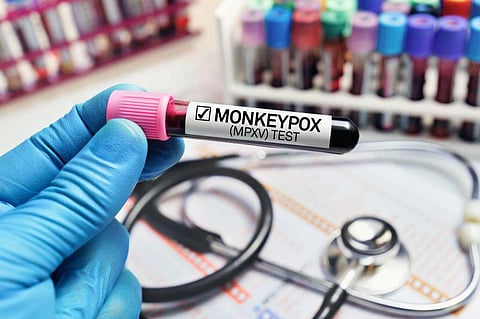THURSDAY, May 25, 2023 (HealthDay News) -- U.S. health officials are bracing for the possibility that mpox could surge again this summer as cases mount in several states.
On Thursday, the U.S. Centers for Disease Control and Prevention reported 21 more cases of mpox, with Illinois, New York and Maryland reporting the most new infections. Illinois had nine, while New York and Maryland reported three each.
Several other states — Alabama, Arizona, Florida, Louisiana, Texas, Utah and Virginia — each reported one new case, CBS News reported.
"The risk of near-term clusters and outbreaks is substantial and the outbreaks could be large, especially in the warmer months, with planned gatherings that may have the potential for skin-to-skin contact and increased sexual activity," Dr. Christopher Braden, head of the CDC's mpox response, said in a recent call with clinicians.
The CDC is already investigating a cluster of cases in the Chicago area, which have predominantly been reported in men who have sex with men and include several cases of individuals who’ve been vaccinated. It’s possible the virus has evolved with mutations that evade the two-dose vaccine.
"CDC is collaborating with the Chicago Department of Health to investigate this cluster and specifically looking into why we are seeing more vaccinated cases than expected," Braden noted.
Other mutations have been seen in the virus that causes mpox, according to the CDC. Some strains of the monkeypox virus also showed signs of resistance to the antiviral drug tecovirimat (TPOXX), the CDC noted in a study that has not yet been peer-reviewed.
A shift in vaccine strategy is now being considered, the experts said.
"We've already, really immediately after seeing the Chicago cluster, convened folks within the U.S. government to discuss what the data is that we have and if there needs to be any change," said Dr. Demetre Daskalakis, deputy director of the White House national mpox response.
Americans should still get the two-dose Jynneos vaccine to guard against mpox infection, Daskalakis said, because it is still expected to be able to limit a resurgence.
"We are on it, from the perspective of having the scientific discussions and are obviously, as sort of demonstrated in the track record of the response, really adjust our strategy based on what science is showing us," Daskalakis added.
U.S. cases are still at less than three per day, with 32 infections diagnosed in May so far. A total of 41 mpox cases were diagnosed in April, CBS News reported.
More information
The World Health Organization has more on mpox.
SOURCE: CBS News


